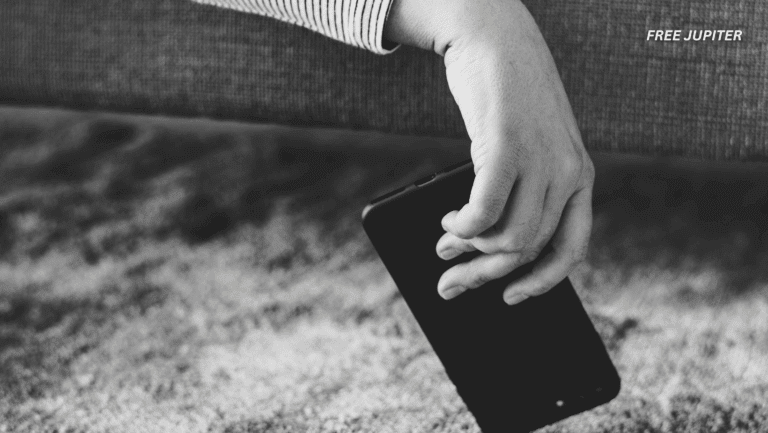Friendly Note: FreeJupiter.com is a place for curious minds and fun discoveries 🌌✨ But we’re a general information site, not a medical guide. Always double-check the facts—and when it comes to your health, check in with a professional too! 💙
For countless people around the world, the morning doesn’t officially begin until that first sip of coffee passes their lips. The rich aroma drifting through the kitchen, the warmth of the cup in hand, and the quick jolt of alertness it brings all combine to form a ritual that feels almost sacred. While many coffee lovers have long insisted that their cup of joe lifts their mood, science is beginning to confirm that this morning habit may indeed brighten the day.
A recent study by researchers at Bielefeld University in Germany and the University of Warwick in the UK found that caffeine doesn’t just keep us awake—it may also give us a happiness boost, particularly in the morning.
Why Mornings Feel Better With Coffee
The research team followed 236 young adults in Germany over the course of four weeks. Rather than relying on a one-time laboratory test, they observed how coffee influenced participants’ real, everyday lives. Volunteers completed short surveys on their smartphones seven times each day, logging their mood and whether they had consumed caffeine within the last 90 minutes.
The results revealed a clear pattern: people tended to feel more cheerful, energetic, and positive in the morning after having coffee or another caffeinated drink compared to mornings when they hadn’t. The “happiness effect” was strongest earlier in the day, suggesting that coffee plays a unique role in setting the tone for mornings.
Interestingly, participants also reported slightly fewer negative emotions—things like irritability, sadness, or feeling sluggish—after drinking coffee. However, this effect was less dramatic and didn’t change much depending on the time of day.
Read more: Scientists Turn Coffee Waste Into Bricks—And They’re Twice as Strong as Standard
Coffee’s Effect Was Surprisingly Universal
One of the more intriguing findings was that caffeine’s mood-boosting qualities appeared consistent across different types of people. Whether participants were occasional sippers or heavy coffee drinkers, whether they struggled with mild anxiety or reported symptoms of depression, the overall effect of coffee on mood was strikingly similar.
The researchers had initially expected that highly anxious individuals might react poorly to caffeine, since it can sometimes heighten restlessness or nervousness. However, no such differences were detected in this group. Of course, it’s worth noting that the study didn’t include people who completely avoid caffeine. Those who know they react badly to coffee may have excluded themselves long before signing up.
How Coffee Works Its Morning Magic
So, what is it about caffeine that makes mornings brighter? Scientists believe it comes down to how caffeine interacts with brain chemistry.
Normally, as the day wears on, our brains produce more adenosine, a chemical that binds to receptors and makes us feel sleepy. Caffeine cleverly mimics adenosine’s shape, blocking those receptors without activating them. In other words, it tricks the brain into holding off on the “tired” signals.
But the story doesn’t end there. By blocking adenosine, caffeine indirectly boosts the activity of other brain chemicals—most notably dopamine, which is strongly tied to feelings of pleasure, motivation, and alertness. This chemical interplay explains why coffee doesn’t just help us stay awake but can also give us a noticeable mood lift, particularly when we need it most—right after waking up.
The Role of Withdrawal
However, another possibility lingers in the background. Could the morning coffee boost partly come from relieving overnight withdrawal symptoms?
Even people who drink a moderate amount of caffeine daily can develop mild withdrawal overnight. Symptoms may include grogginess, irritability, or difficulty concentrating. That first cup of coffee could simply be restoring the brain to its usual “baseline” rather than adding extra joy.
Professor Anu Realo from the University of Warwick explains that while caffeine clearly improves alertness and mood, the exact balance between chemical stimulation and withdrawal relief remains uncertain. More research will be needed to untangle those effects.
Read more: Coffee Lovers Rejoice: Science Says Your Habit Helps You Live Longer
Coffee as a Global Ritual
One thing is certain: coffee drinking is far from a niche habit. About 80 percent of adults worldwide consume caffeinated beverages daily, making caffeine the most widely used psychoactive substance on Earth.
Human fascination with caffeine stretches back centuries. Coffee plants were first cultivated in Ethiopia, and by the 15th century, coffee houses were thriving in the Middle East, serving as lively centers for conversation, culture, and debate. By the 17th century, coffee had spread to Europe, where cafés became gathering places for intellectuals, merchants, and artists.
Even in the natural world, caffeine’s allure is evident. Research has shown that bees and bumblebees prefer nectar from flowers containing caffeine, possibly because it sharpens their memory and helps them find those flowers again. In this sense, humans aren’t the only species hooked on a little caffeinated buzz.
Beyond the Happiness Boost: Coffee’s Complex Relationship With Health
While the recent study highlights coffee’s positive emotional effects, caffeine is a double-edged sword. Consumed in moderation, it has been linked to benefits like improved focus, faster reaction times, and even potential protective effects against certain diseases. Some studies suggest regular coffee drinkers may face a lower risk of conditions like Parkinson’s disease and type 2 diabetes, though the exact reasons remain debated.
However, there are also well-documented downsides. Drinking too much caffeine can lead to dependence, jitteriness, increased heart rate, and digestive discomfort. Consuming it late in the day often disrupts sleep, which in turn can harm mood and productivity the following morning—the very opposite of what coffee lovers want.
The key, researchers emphasize, is balance. For most healthy adults, up to 400 milligrams of caffeine per day—roughly the amount in four cups of brewed coffee—is considered safe. But everyone’s tolerance varies, and some may feel the effects at much lower doses.
Coffee as Comfort and Connection
Beyond the chemistry and statistics, coffee also carries emotional weight as a daily ritual. For many, the act of brewing or buying coffee provides a moment of stability in a chaotic world. It’s a pause before the day accelerates, a chance to reset the mind, or even a reason to connect with others.
Think of the conversations sparked in coffee shops, the comfort of a warm mug on a rainy morning, or the familiar clink of a spoon stirring sugar and cream. These sensory details and shared experiences contribute to coffee’s role as more than just a drink—it’s a cultural anchor.
What This Study Means for Everyday Coffee Drinkers
So, what does all of this research boil down to for the average person? If you enjoy a morning cup, science now supports what you may have felt all along: that it truly makes mornings brighter. The effect is strongest at the start of the day, when both body and brain seem most receptive to caffeine’s uplifting qualities.
That said, moderation matters. Coffee isn’t a miracle cure for sadness, stress, or fatigue, but it can offer a reliable boost in mood and alertness when used wisely. The study’s authors caution against overconsumption, reminding us that too much of a good thing can backfire.
Read more: How Drinking Coffee Every Morning Impacts Your Gut Health
The Takeaway: A Cheerful Cup With Caveats
Coffee is more than just a wake-up tool—it’s a blend of biology, culture, and comfort that continues to fascinate scientists and drinkers alike. This new study strengthens the idea that coffee is not only about staying awake but also about starting the day with a lighter mood.
Of course, the happiest mornings are likely the ones where coffee is enjoyed as part of a balanced routine: not chugged in panic before rushing out the door, but savored as a small ritual that makes waking up a little gentler.
Disclaimer: The information in this article is for general informational purposes only and is not medical advice. We are not doctors, and this website is run as a family hobby project. Always consult a qualified healthcare professional before making decisions about your health. Please fact-check any claims and use this content as a starting point, not a substitute for professional guidance.










